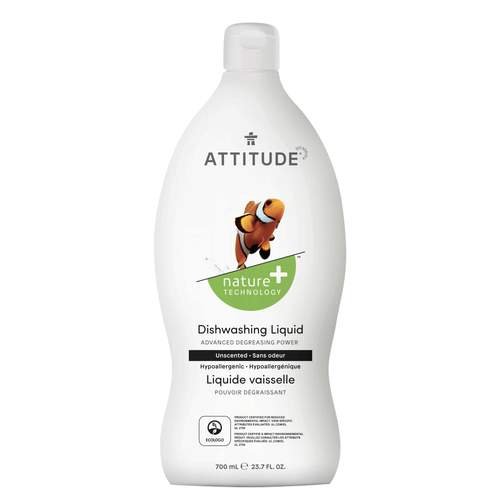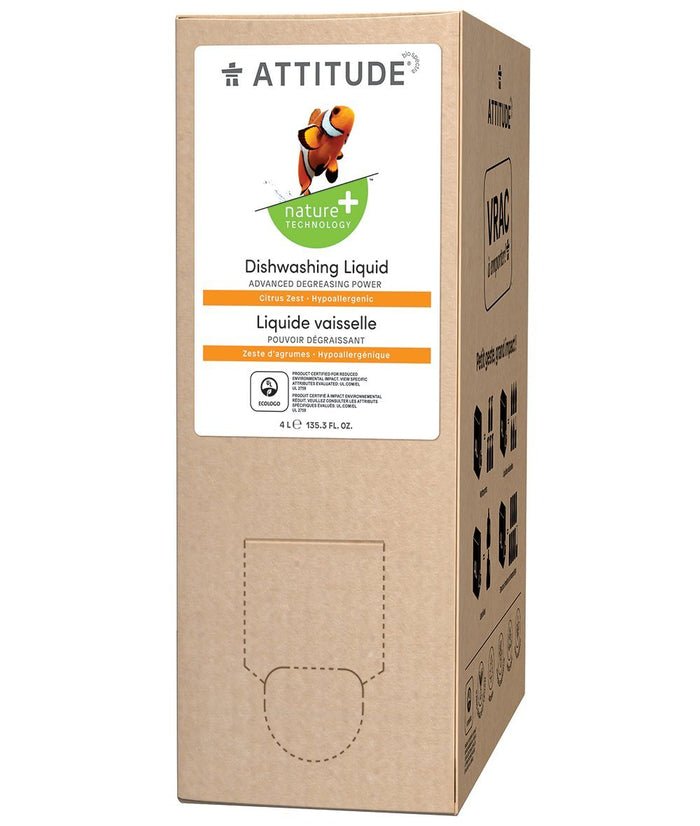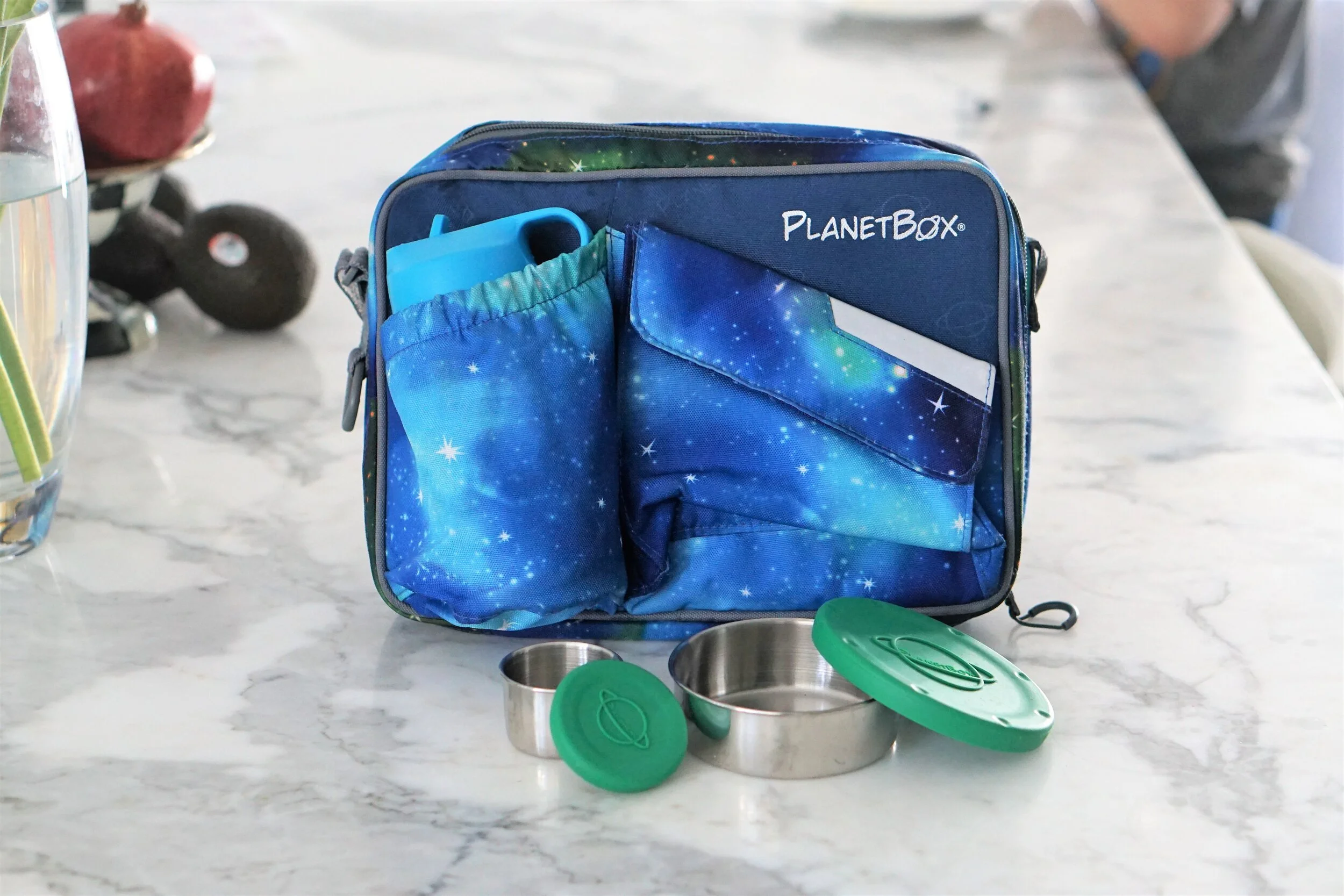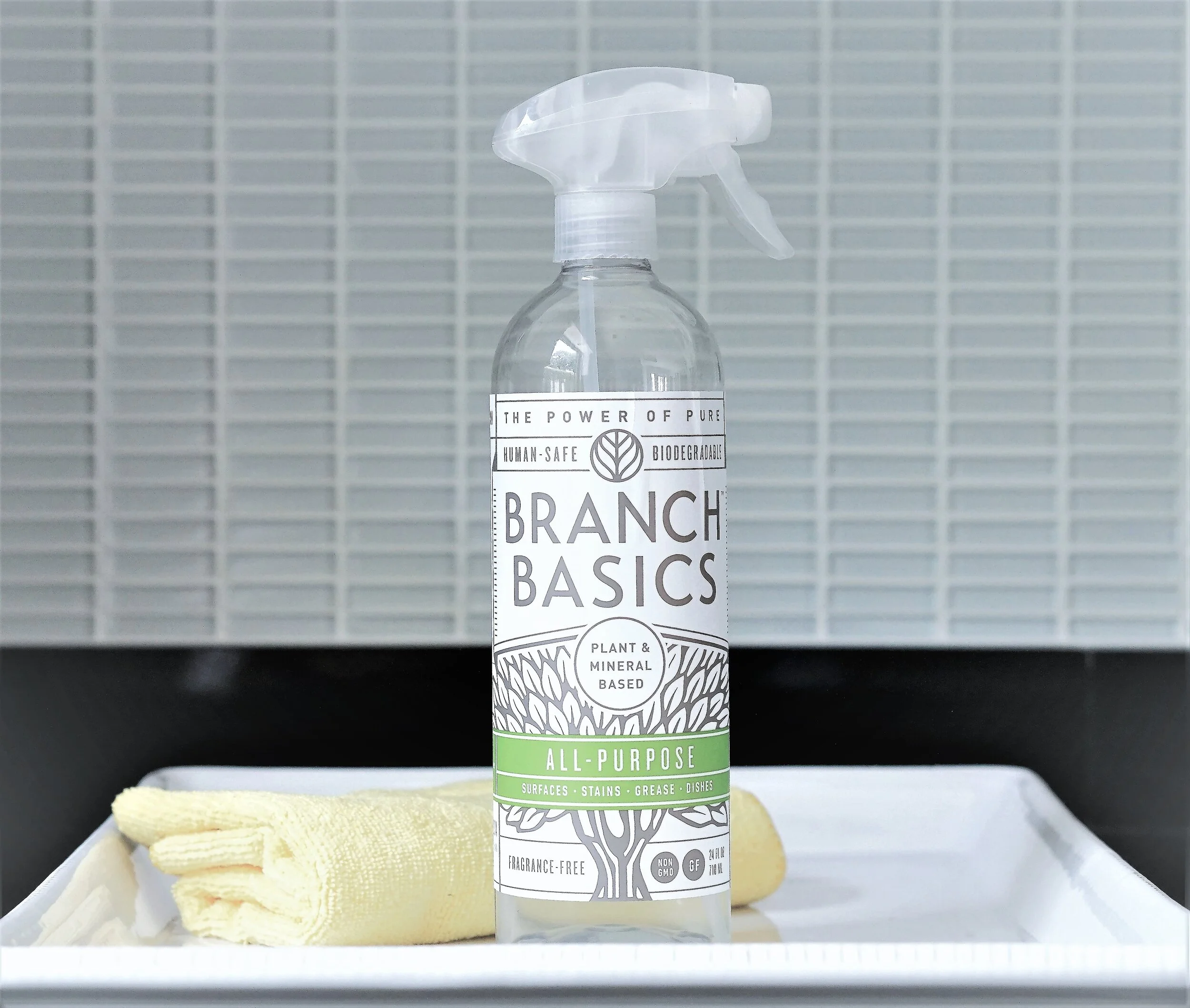Non-Toxic Dish Soap
Most dish soaps contain fragrances and other toxic ingredients you want to avoid, even those marketed as “natural.”
Ingredients To Avoid In Dish Soap
A big concern with dishwashing liquids are the use of harmful antibacterial agents. Antibacterial agents are not necessary for washing dishes and contribute to antibiotic resistance. These include triclosan, triclocarban, benzalkonium chloride, benzethonium chloride, chloroxylenol, among others.
Triclosan and Triclocarban
The FDA has ruled triclosan and triclocarban not safe and effective for over-the-counter antiseptic washes (hand soap and body wash), but they are still allowed in other products like dish soap. The American Medical Association advises not to use triclosan at home.
Benzalkonium Chloride, Benzethonium Chloride, and Chloroxylenol
A study on benzalkonium chloride (BAK), BEC, and chloroxylenol indicates BAK is not safer than triclosan or triclocarban. Animal studies show all three induce neurotoxicity. Additional studies have shown that they may “exaggerate disease development of inflammatory bowel disease and associated colon cancer in mice.” The FDA has deferred ruling on benzethonium chloride (BEC), and chloroxylenol.
Other toxic ingredients commonly found in dishwashing liquids include the following:
Fragrance – can be a mix of fragrance and chemicals which are associated with allergies, dermatitis, respiratory distress and potential effects on the reproductive system. Studies have revealed toxic ingredients in fragrance such as phthalates, octoxynols, and butylphenol methylpropianol. Additionally, fragrances emit harmful volatile organic compounds and fragrance is one the 5 common allergens found in cosmetics.
Phenoxyethanol - preservative can be found naturally in green tea, but is created synthetically in a lab for use as a preservative in cosmetics and personal care products. Phenoxyethanol is made from the reaction of ethylene oxide, phenol and an alkali. Ethylene oxide on its own is a carcinogen, and it is associated with reproductive effects. Phenol is a toxic powder created from benzene, which is a carcinogen. Because phenoxyethanol is an ethoxylated ingredient, it can contain the carcinogenic contaminant 1,4-dioxane and residual ethylene oxide. In 2008 the FDA warned consumers not to use Mommy’s Bliss Nipple cream because it contained phenoxyethanol which was harmful to infants. The statement indicated phenoxyethanol could “depress the central nervous system and may cause vomiting and diarrhea, which can lead to dehydration in infants.”
Methylisothiazolinone – preservative associated with allergic reactions that is possibly neurotoxic based on lab studies on the brain cells of mammals. It is banned or found unsafe for use in cosmetics by the European Scientific Committee on Consumer Safety (SCCS) and the German Federal Institute for Risk Assessment (German BfR).
Benzisothiazolinone – preservative that is an allergen and associated with skin/eye/lung irritation. It is banned or found unsafe for use in cosmetics by the European Scientific Committee on Consumer Safety (SCCS).
Non-Toxic Dish Soap
Attitude dish soap cuts through grease and is an effective liquid soap for handwashing pots, pans, dishes. Attitude does not contain antibacterial agents, fragrance, or other harmful ingredients. It comes in unscented or scented options and offers eco friendly refills to reduce waste.
Switch
Seventh Generation Natural Dish Liquid Free and Clear contains methylisothiazolinone and benzisothiazolinone.
Dawn, Joy, and Gain contain antibacterial agents, fragrance, methylisothiazolinone, and phenoxyethanol.
How to Buy
Price at the time of publishing is $4.89 for a 22 fl oz bottle and $16.99 for a 67.62 refill. Save with code ANDREA10 and get free shipping over $60. Also available on Amazon. As an Amazon Associate I earn from qualifying purchases.
References & Resources
[1] https://www.fda.gov/cosmetics/cosmetic-ingredients/allergens-cosmetics
[2] https://ec.europa.eu/health/scientific_committees/opinions_layman/perfume-allergies/en/index.htm
[3] https://www.ncbi.nlm.nih.gov/pmc/articles/PMC5093181/
[4] https://pubmed.ncbi.nlm.nih.gov/29348075/
[5] https://academic.oup.com/toxsci/article/163/2/490/4921230
[6] https://www.ncbi.nlm.nih.gov/pubmed/29514330
[7] https://www.ncbi.nlm.nih.gov/pubmed/14572300
[8] https://www.healthywomen.org/content/blog-entry/fda-warns-mothers-about-mommys-bliss-nipple-cream









